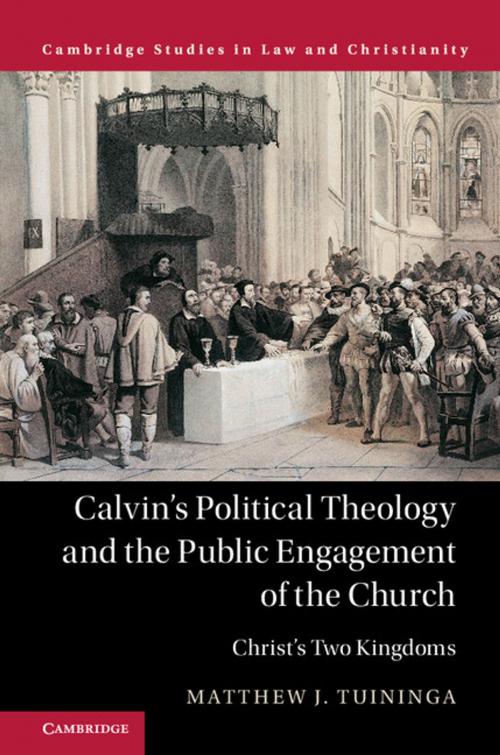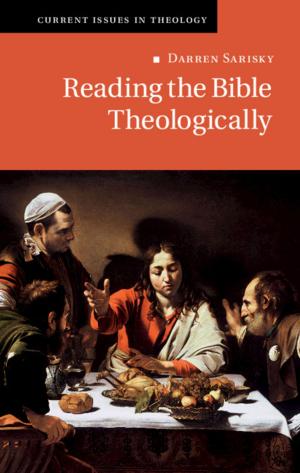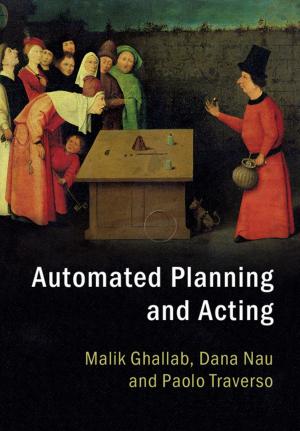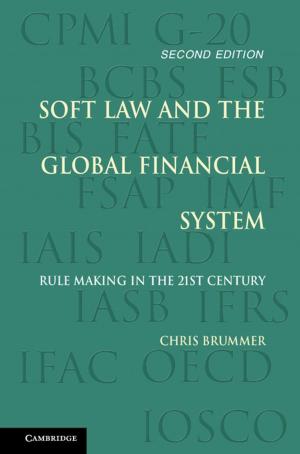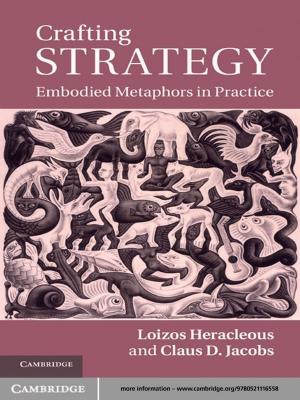Calvin's Political Theology and the Public Engagement of the Church
Christ's Two Kingdoms
Nonfiction, Reference & Language, Law, Jurisprudence, Religion & Spirituality| Author: | Matthew J. Tuininga | ISBN: | 9781316771945 |
| Publisher: | Cambridge University Press | Publication: | April 6, 2017 |
| Imprint: | Cambridge University Press | Language: | English |
| Author: | Matthew J. Tuininga |
| ISBN: | 9781316771945 |
| Publisher: | Cambridge University Press |
| Publication: | April 6, 2017 |
| Imprint: | Cambridge University Press |
| Language: | English |
In Calvin's Political Theology and the Public Engagement of the Church, Matthew J. Tuininga explores a little appreciated dimension of John Calvin's political thought, his two kingdoms theology, as a model for constructive Christian participation in liberal society. Widely misunderstood as a proto-political culture warrior, due in part to his often misinterpreted role in controversies over predestination and the heretic Servetus, Calvin articulated a thoughtful approach to public life rooted in his understanding of the gospel and its teaching concerning the kingdom of God. He staked his ministry in Geneva on his commitment to keeping the church distinct from the state, abandoning simplistic approaches that placed one above the other, while rejecting the temptations of sectarianism or separatism. This revealing analysis of Calvin's vision offers timely guidance for Christians seeking a mode of faithful, respectful public engagement in democratic, pluralistic communities today.
In Calvin's Political Theology and the Public Engagement of the Church, Matthew J. Tuininga explores a little appreciated dimension of John Calvin's political thought, his two kingdoms theology, as a model for constructive Christian participation in liberal society. Widely misunderstood as a proto-political culture warrior, due in part to his often misinterpreted role in controversies over predestination and the heretic Servetus, Calvin articulated a thoughtful approach to public life rooted in his understanding of the gospel and its teaching concerning the kingdom of God. He staked his ministry in Geneva on his commitment to keeping the church distinct from the state, abandoning simplistic approaches that placed one above the other, while rejecting the temptations of sectarianism or separatism. This revealing analysis of Calvin's vision offers timely guidance for Christians seeking a mode of faithful, respectful public engagement in democratic, pluralistic communities today.
